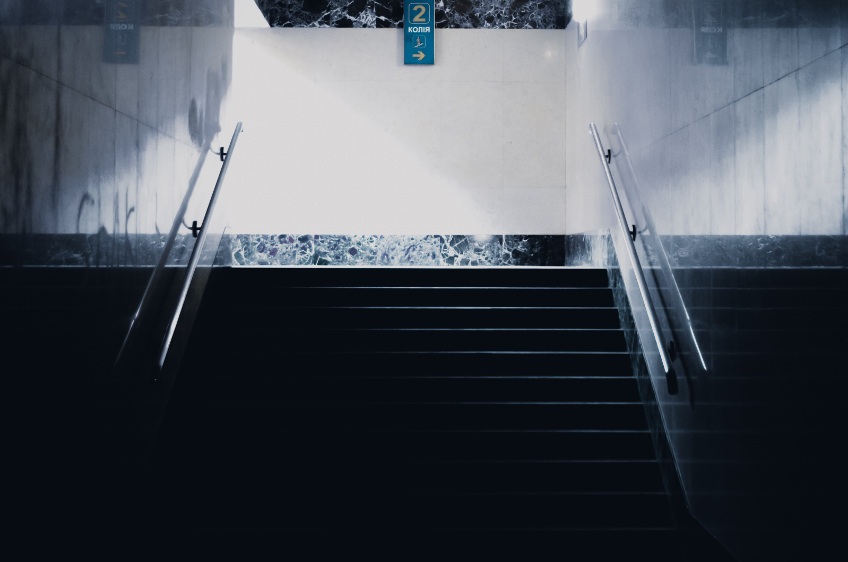
Slip and Fall Injuries
Say you slip on the bottom step in the stairwell at the mall and fall over, landing on your knees. There was a puddle you didn’t see in the dark stairwell. It hurts, but you get over it. Three weeks later, you wake up with agonizing back pain.
When your doctor diagnoses a sprained pelvis, you make the connection between your injury and your fall. If that stairwell had been lighted properly, you might have seen the puddle. If the puddle hadn’t been there, you might not have fallen.
Can you sue the company to reclaim damages for medical expenses and lost wages for time off work?
A successful claim depends on how well you and your slip and fall attorney can prove three things. To win a slip and fall personal injury case, you need to prove:
- Liability. The defendant had a duty of care, and was negligent in performing their duty of care.
- Negligence. The defendant breached that duty and the plaintiff was harmed.
- Responsibility/Fault. The breach of duty, or negligence on the part of the defendant, was a major factor in causing the plaintiff’s injuries.
Download this Blog: Be able to read this info wherever you are. Click here to download it for free right now!
Duty of Care
In California, everybody has a duty to exercise care when they are doing something where another party may be injured.
A premises owner has different levels of duty of care toward entrants on his premises, depending on what category of entrant they belong to. An invitee is the highest level of entrant, and is basically anyone who is invited by the premises owner or a tenant there to come visit (i.e., a customer at a store, a client at a business, etc.). A premises owner has a reasonable duty of care to maintain and repair the premises and so that invitees are not injured.
Other categories of entrant, licensees and trespassers, are owed a correspondingly diminished duty of care. A licensee is a person who is on the property of another with permission, when the property is not open to the general public, and a trespasser is a person who is on the property of another without any permission when the property is not open to the general public. While an owner must warn a licensee of any dangers, they have a more limited duty of care to maintain or repair the premises or keep it free from dangers. Apart from refraining from deliberate injury, a property owner has no duty of care to trespassers.
When pursuing a claim for damages, your best chance of a successful outcome is if you can prove you are an invitee or, at the very least, a licensee. If you are a shopper or an employee, chances are you stand a good chance of qualifying for the status of invitee, under the right circumstances.
If you are at the premises outside normal business hours without you’re the property owner’s permission, then the defense might try to convince the judge or jury that you were trespassing. Perhaps oddly, social guests and family members are generally considered no better than licensees.
Negligence
In order to demonstrate negligence, you need to prove that the defendant failed to act reasonably prudently to prevent the injury. For example, did the hazard exist for a sufficient period of time for the defendant to discovery it and have been able to remove the hazard? If someone threw a banana peel on the floor and you slip on it immediately afterward, the defense might argue that the defendant did not have sufficient time to realize the banana skin was there and to pick it up.
If, on the other hand, the banana peel had been on the floor for, say half an hour or more, the judge/jury may decide that the defendant had a reasonable period of time to discovery it and make the floor safe.
Was poor lighting a factor in the accident? Did the defendant keep a log demonstrating that he routinely checked the property for hazards?
Responsibility/Fault
This is arguably the most difficult part to prove, that the defendant caused the accident in which the plaintiff was injured. Was the plaintiff behaving in a way that contributed to the accident?
California recognizes the Comparative Fault Rule. The rule permits a damaged party to recover even if it is as much as 99% responsible, although the amount of damages awarded is diminished accordingly.
If you and your slip and fall attorney can prove that all of the above conditions were met, it may lead to a positive outcome in court or even a settlement out of court.
Your Best Bet
Due to the complexity of any given premises liability case, you are much better off hiring an attorney. Attempting to make this claim on your own (or worse, with an inexperienced attorney) can backfire on you quickly and substantially.
If you think you’ve got a case, call Kuzyk Personal Injury & Car Accidents Lawyers right away. We are very familiar with injury cases of this nature, and can walk you through every step of the way. Call us now to set up a free case evaluation!
(661) 945-6969